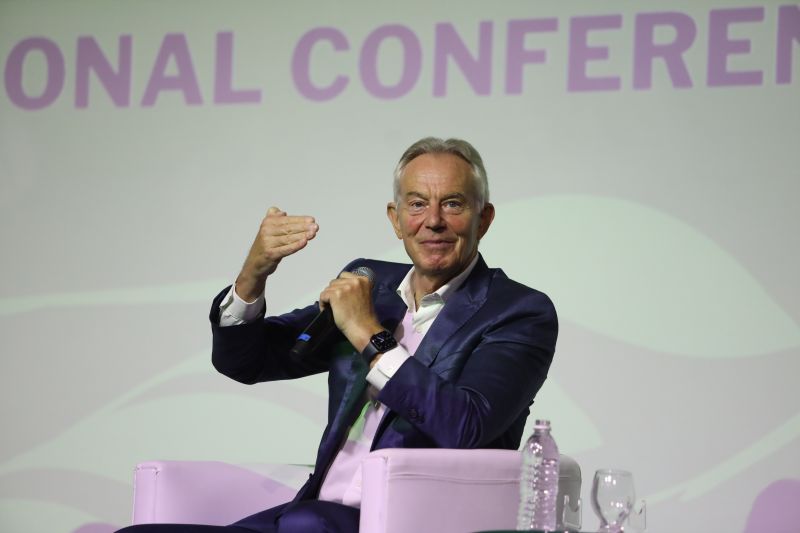For Tony Blair, finance and technology are solutions to the climate crisis

The Right Honorable Prime Minister of Great Britain and Northern Ireland was the main attraction of the second day of The Amazon and New Economies International Conference
The solution to the climate crisis involves financing and investing in technologies that can change the way we deal with economic growth. This was the central message of the participation of the very honorable Tony Blair, Prime Minister of Great Britain and Northern Ireland (1997-2007), during The Amazon and New Economies International Conference , this Thursday (31), in Belém (PA).
When assessing humanity’s delay in reacting to the environmental transformations resulting from the current form of production and consumption, Tony Blair remembered that, in 2004, wind and solar energy were very expensive solutions. “Today, both are cheap and this happened due to technological progress”, he pointed out, to exemplify the importance of investing in innovation. “The world will continue to grow and we need to continue to lift people out of poverty. Moreover, how do we do this sustainably? The balance between sustainability and development is at the heart of this issue”, he added.
The Prime Minister of Great Britain and Northern Ireland said he does not believe that there is a change in people’s attitudes due to the climate crisis, although, at least in the West, they believe that this is important. “We are experiencing a cost of living crisis in several European countries due to the rise in energy costs, which have tripled in some nations. So, governments are more focused on managing the situation so that people have energy at a reasonable price, and end up resorting to traditional forms of energy, such as fossil fuels”, he noted.
Regarding financing for the transition to a low-carbon economy, Tony Blair recognized the disadvantage of developing countries in relation to the reduction targets of greenhouse gas emission, but pointed out that this is an issue that needs to be worked on by all nations. “Developed countries created the problem, so, historically, the responsibility lies in their hands. However, emissions are falling there. By 2030, emissions from the United States and Europe will represent 20% of global emissions. On the other hand, developing countries did not create the problem and now want to develop. Then their emissions started to rise. In 2030, India, China and the rest of Southeast Asia will account for 70% of emissions”, he pondered.
Tony Blair also spoke about King Charles III’s involvement with the environmental agenda and the importance of the monarchy for the United Kingdom — about the revolution that is underway with the growth of artificial intelligence, especially in areas such as health, with new opportunities for medicines and treatments. In addition, he denied that he had plans to return to 10 Downing Street, news that was reported in some international newspapers.
When talking about the difficulties faced by those who choose the political path, the Right Honorable Tony Blair pointed out that this “is the only situation in which you have a very important job and you put people in it with no qualifications”. To reduce this situation, he cited the efforts of the Tony Blair Institute for Global Change to shorten the learning curve for leaders. “They have a difficult job. If you do not want to be criticized, do not be a leader. Now, you have to listen to criticism, but not let it paralyze you, especially today, when networks create a very harsh environment”, he commented.
At the end, the Prime Minister left a positive message for the Conference participants: “What should feed us and give us hope is that humanity has not created problems that are beyond its ability to solve. It won’t be easy, but it will happen with hard work, commitment and a good plan.”
About the Conference
The Amazon and New Economies International Conference is promoted by the Brazilian Mining Institute (IBRAM), a non-profit organization that brings together more than 130 companies and institutions that work in the Mineral sector and are committed to protecting the Amazon. IBRAM and its members are committed to innovations in the sector and to disseminating the best business and environmental practices.
The event brings together representatives of the peoples of the forest, civil society, academia, the public and private sectors in the capital of Pará to address issues involving the environment, the economy and sustainable development.
Follow the Conference on social media

